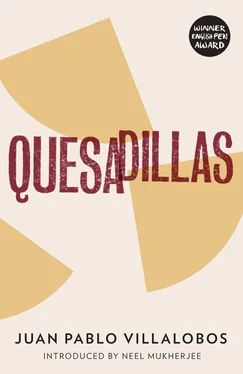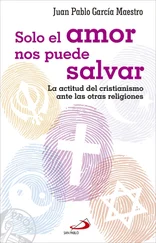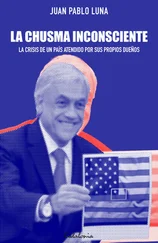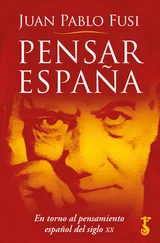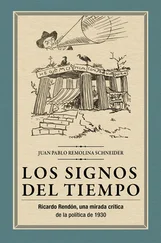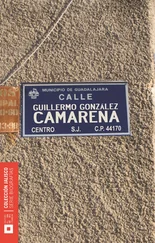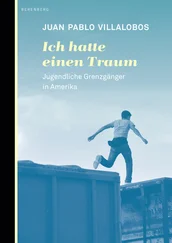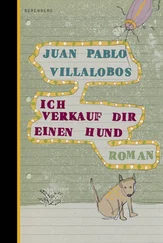‘They’ll take him to Guanajuato. Jaroslaw knows people there.’
‘But that’s illegal.’
‘Going into someone else’s house and stealing is what’s illegal.’
For a minute I thought: finally, I’ll get to see León. But I couldn’t concentrate on that possibility because Pink Floyd was distracting me from my misfortune. It turned out that my grandfather had discovered Pink Floyd’s marijuana crop on his plot of land. He’d kept it hidden for years down at the bottom of the field, beyond the sweetcorn, but one day it had suddenly occurred to Grandpa to have the vegetables dug up to make way for watermelons.
‘Watermelons?’
‘Yeah, watermelons. Your grandpa’s old and he has a few loose screws.’
The difference between this new uncle of mine, Pink Floyd, and other adults was that when I told him how I’d ended up in jail he didn’t correct me or tell me it was a lie or demand I tell him the truth. He wasn’t Aristotelian or Socratic, he was a radical don’t-give-a-fucker, which is the national version of relativism. The only fault he found in my story was our choice of destination for the encounter with the aliens.
‘Mesa Redonda? That’s where you screwed up. It’s Cuarenta that the aliens go to.’
It seemed the most normal thing in the world to my uncle that Jaroslaw had reported me. He said that he’d done it to make me learn my lesson; that the hardest job of the rich was controlling the poor, to make sure they didn’t rebel.
‘What you have to do is make sure you don’t learn your lesson. They let you go and you go and steal from them again, let them learn their lesson. They’re the thieves, the ones who control the means of production, like old man Marx used to say. Have you seen the price of milk? One day you go to the shop and a litre costs 200,000 pesos. You have a Chocomilk, a bowl of cereal and you make yourself a milkshake. Go back to the shop the next day. How much is a litre now? Seven million pesos! The milk is the same, the cows are right over there! And who do the cows belong to? No one! The cows don’t belong to anyone. The cows belong to everyone. You follow me? So the next day you get up at five in the morning, you go to a ranch and you milk one of your cow comrades. And what happens if they catch you? They throw you in jail, man! The rich send people to jail like a teacher sends a kid to stand in the corner. Your grandfather too.’
‘But my grandfather’s poor.’
‘Your grandfather, poor? He’s got two hectares of land! And anyway, you’re not poor. I don’t know what you’re complaining about — you’re from the wealthy side of the family.’
In this my uncle Pink Floyd and Aristotle were in agreement: according to my older brother, we were practically millionaires compared to the pilgrims and, according to Pink Floyd, I was rich simply by dint of having a few miserable cousins who really were genuinely poverty-stricken.
‘They screwed you over with your name. I’ve got a gringo pal who told me that in the States black people who try to act like they’re white get called Oreos. Like the cookies: black on the outside, white on the inside. That’s your karma, man, you’ll never be happy with who you are. You know the first thing you’re gonna do when you have money? Fix your teeth.’
Why pay for a psychoanalyst when you have a stoner uncle? An uncle, what’s more, who is not ashamed to show you a stain exactly the same shape as the African continent imprinted on his upper incisors. The solution, however, was simpler, and cheaper: to learn to talk, to laugh, to chew, in short, to learn to use one’s mouth without showing one’s teeth.
My father turned up accompanied by Jaroslaw, who started signing forms authorising my liberation. Anyone who didn’t know my father would think he had come to a reasonable agreement with Jaroslaw and that he had, moreover, managed to steer the situation back to the serenity that a mutual interest in keeping up appearances always guarantees. Jaroslaw was telling him about a project to divide up the land on the Cerro de la Chingada and they looked exactly like what they were not: a couple of neighbours talking about what was going on in the neighbourhood. That’s what appearances are like, treacherous motherfuckers.
Pink Floyd knew my father pretty well and he interpreted the scene perfectly: ‘He’s good, your dad; it doesn’t even look like he’s licking his ass.’
Jaroslaw was low enough to wait for me to emerge from my cell before slapping me on the back and confirming my uncle’s theories.
‘It’s for your own good, kiddo, you’ll see — one day you’ll thank me for it.’
It was like having your gangrenous right leg cut off and then, years later, a glass falling from your hands, smashing to pieces on the floor, just in the place where your right foot should have been, and you saying, ‘Wow, it’s lucky they cut off my leg.’
I didn’t have time to reply because Jaroslaw returned to the attack with a puzzling remark: ‘See you on Monday.’
On the way home, my father used our silence as a way of punishing me. I didn’t know how to react to this strategy. A silence aimed specifically at me — I wasn’t sure if I was meant to contribute by being mute myself or if I should interrupt him with apologies or evasive conversation. It wasn’t that I was having a hard time exactly; I just didn’t understand what was going on. When was he going to start telling me off, threatening me, explaining the consequences of my actions to me? And what was this business about Monday? I decided to wait, to hold back and let my father believe his muteness was having an effect.
The silence carried on as usual, building on its already overvalued status as the essential companion to serious moments. This was no silence for reflecting in, but one of those absolute silences in which time seems to stop altogether. The sounds of the city entered the truck, and the truck itself had become an inexhaustible source of creaking as it headed towards the final collapse. This could only be called silence because the two of us were sitting there with our damn mouths shut. Suddenly it seemed to me that the game consisted of seeing who would give in and speak first, that what my father wanted was for me to beg him to stop being silent, to beseech him to put me in my place. To demand my own punishment.
‘Sorry, Dad, I’m really sorry.’
My father’s right hand left the steering wheel for a minute and gently squeezed my neck, as if he was trying to wring it using a technique designed to kill chickens without their realising. I imagined a chicken farm staffed by a caring executioner. He started to tell me what Lagos was like when he was a boy, when everyone knew each other and said hello in the street; that in the rainy season people would swim in the river (which wasn’t yet polluted back then), that you could work in the fields in exchange for free fruit, that they used to hunt wood pigeons and roast them on bonfires, and that he had met my mother when he was my age, at a moonlit barbecue party, eating charred sweetcorn.
I was unable to enjoy my father’s story because I was waiting for the twist that would turn it into a lesson, from which the punishments and the ultimatums would be drawn. It was a gargantuan qualitative leap from the literal to the allegorical, without stopping off at the metaphorical, which was what happened when parents thought you had grown up. Did he mean that the town was a better place before, when there were no Polish people? Was he suggesting I look for a job on a farm? Should I hurry up and find a wife?
We got home and, as he parked the truck, my father gave my neck another loving squeeze; thousands of chickens died at that moment in order to feed humanity.
‘Starting on Monday you’re going to work with Jaroslaw, until you go back to school.’
Читать дальше
